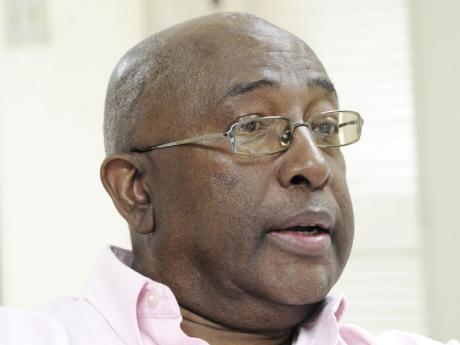'Get young people involved' - Dr Amiel encourages renewal of Jamaica's agriculture sector
TOLL GATE, Clarendon:JAMAICA NEEDS to get back to basics in agriculture and invest in getting young people to embrace emerging technology in order to once again become a producer of first-grade agricultural produce of international ratings. That is the view of Dr Keith Amiel, corporate affairs manager at Caribbean Broilers Group.
"We've got to wake up and smell the roses and get back to where we were and then go further beyond that because this country has many things in which we could have a strategic advantage. We just need people to be motivated to do it," he told The Gleaner during a recent tour of the Ebony Park HEART Academy in Toll Gate, Clarendon. The occasion was the signing of a memorandum of understanding which will see the CB Group sharing its state-of-the-art technology with students at the academy.
He insisted that "the technology to do it, the basic technology is there. It's a matter of getting motivated youngsters just to take it and run with it".
A veterinarian by training, Amiel noted that agencies such as HEART could be instrumental in leading the charge to move from mere primary production to vertically integrated production, which is the way to go.
"It starts with research and development of the right type of plant or animal to produce. It goes to multiplying that right type of plant or animal. It goes to creating the extension services to train the farmers and graduates who will become part of the extension service training network," he charged.
Supervising farmers
Then it will extend to supervising the farmers actually producing the products as they have been trained or supervised to do. However, that primary product doesn't stop there, according to Amiel. Effectively, a raw material, it must now go further into processing, where it is differentiated into distinct Jamaican products which are branded Jamaican and targeted for the tourism and international markets.
The CB Group executive, who is also president of the Caribbean Agri-Business Association (CABA), believes that there are more than 20 products in which Jamaica could have a distinct advantage. While some of them, such as Blue Mountain coffee, are obvious options, some have been forgotten, and the potential of others such as West Indian Sea Island Cotton remains largely untapped.
"There is ginger. Ortaniques started here; our logwood honey is the best you can imagine. We have Scotch Bonnet pepper and spices, and so on. Pimento, that's an interesting one. That's what our jerked products are based on. When I was a boy at school, this little island produced 85 per cent of all the pimento/allspice in the entire world (current supply is estimated at less than 10 per cent). We have lost a number of things like that," he mused.
"I remember when Tia Maria, the coffee liqueur based on our Jamaican coffee, was out at Spanish Town Road. Now, if you go and ask for it abroad, they say, 'Oh you want some Mexican coffee liqueur?' because the Mexicans have taken it away from us. That's the kind of problem we have."
Ginger is another crop in which Jamaica has lost ground. Amiel lamented thus: "People forget that the Canada Dry ginger ale industry, that ginger upon which the ginger ale industry was built, came originally from Jamaica. Now they've taken Jamaica off the label.
"It's the same thing in England where they have Stone's Ginger Wine. It said, 'Made with genuine Jamaican ginger' 20 years ago. Now they've crossed the Jamaican off the label because they couldn't get enough to maintain it."
Another sore point for the veteran agriculturalist is the failure of Jamaican farmers to maximise the advantage of their tropical climate.
Idyllic climate
"We have the capacity to do these things with an idyllic climate where the growing season is 365 days a year, and somehow it fell by the wayside. We are currently being fed by countries where the growing season is only seven months of the year. In New Zealand, from where we get our butter and lamb, and the United States, their growing season is seven months. We have a growing season of 365 days a year, and so we need to capitalise on these advantages to bring those things forward in which we have a strategic advantage," he charged.
Driving past an ackee orchard on the Ebony Park property, Amiel could not help but warn of the danger of losing our status as the number one producer of this crop that, for the most part, is not cultivated in a structured way.
"If we don't train people to do it formally, we are going to lose it. In fact, there is a tremendous market, maybe US$50 million, that's not being supplied, and other countries around us, including Haiti, Trinidad, Belize, are beginning to plant ackees because Jamaicans did not respond in time to international demand. So we have to be very careful that time is of the essence. We have to sort of get on with it or else we lose it."
The advantage Jamaica enjoyed some 50 years ago when Dr T.P. Lecky developed tropically adapted dairy and beef cattle has also been lost.
"We were number one in the world. Since then our technology has gone to other tropical countries such as Australia, where they now outproduce us in terms of beef and milk because procrastination is one of our problems. We talk a lot and do very little.
"Hopefully, by working with HEART Academy at the grass-roots level we'll change this approach to doing things so that the country can be more productive, and in fact, have a place in the international market."


